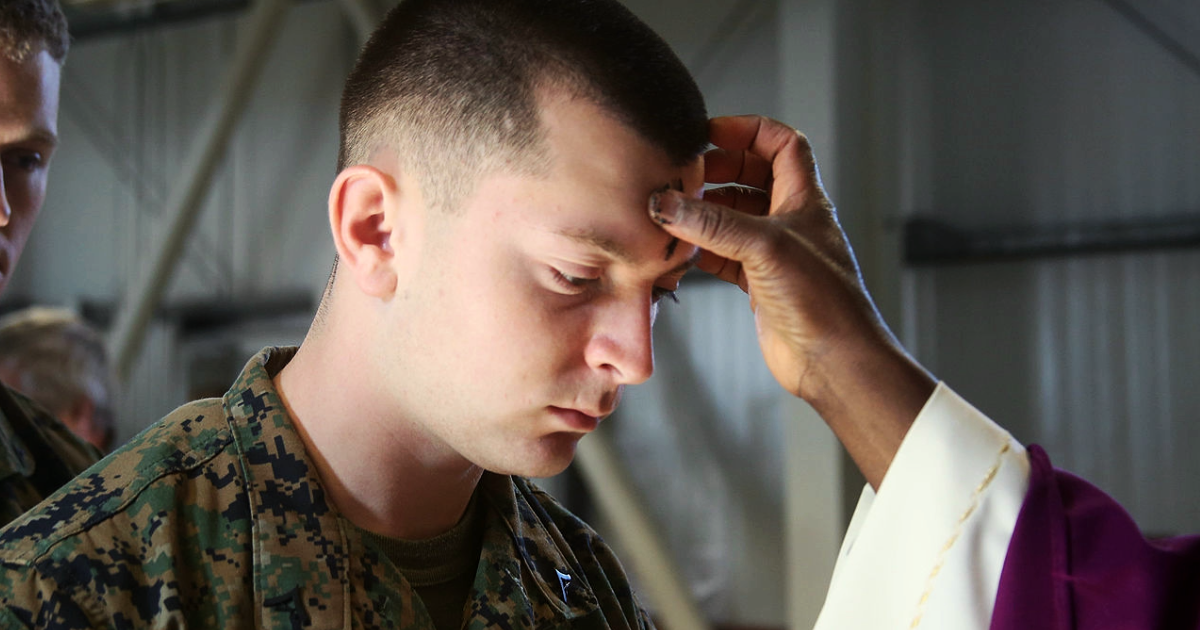Have you ever heard of St. Amanda of Atlanta or St. Frank of Philadelphia? How about St. Margaret of Minneapolis? Probably not, since they’re not canonized, or “known,” saints of the Church … at least, not yet.

Did you know that you are called to become a saint (Tweet this)? That’s right, God’s call for you—before wife or husband or priest or sister or doctor or engineer— is to become a saint. Declining Christ’s invitation to sainthood is life’s greatest daily tragedy. In the words of the Catholic novelist, Leon Bloy,
“The only real sadness, the only real failure, the only great tragedy in life, is not to become a saint.”
“Me, a saint?!? Um, no,” you might think to yourself. “No, no, no…that’s for really holy people. I could never be a saint of the Church.”
Most of us don’t think of ourselves as potential saints—not because we believe God is too small but because we believe ourselves to be too sinful. The two things every saint has in common is that they were all sinners and that they all believed that God’s grace was bigger than their individual sin.
Do you?
You’re created and designed to become a saint; whether or not the Catholic Church ever canonizes you as a saint is a whole different thing. God wants you to live for him, point others to him, and be with him forever in heaven—that is a fact.
The family is a foundational source of learning for us. Our family aids in the formation of our character. As Catholics, we have a rich family history (in the saints) from which to draw, a long lineage of heroic figures capable of guiding us to deeper and deeper levels of holiness. The saints’ example and their prayerful intercession for us are both incredible gifts from God.
So, What Is a Saint Exactly?
The word saint comes from the Latin word “sanctus,” which means holy or set apart. St. Paul first said it (Philippians 4:21) to mean all of the faithful early Christians. Our Church teaches that the saints occupy a hallowed (holy and special) place in heaven. Their place is in the presence of what’s called “the Beatific Vision”—it’s basically front row center in God’s heavenly throne room.
The Church doesn’t say that every saint is named—far from it, actually. The ones we officially call “saints” are joined by countless others who lived “saintly” lives but haven’t officially been investigated or titled saints by the Church. It is difficult to get an accurate picture of just how many “officially” canonized saints the Catholic Church recognizes since the canonization process from the early Church and throughout history has evolved somewhat. Estimates put our “known” and canonized saints well over 10,000 souls … some say as high as 12,000.
The exciting and inspiring fact, though, is that there are living, breathing saints-in-the-making around you right now (Tweet this), and not just the “Blessed Mother Teresa of Calcutta”-types that you hear about in blogs or documentaries. There are saints in your own parish and neighborhood, very likely. While most of them will never enjoy the “title” on earth, it’s OK, since truly saintly people would never want the title anyway.
Celebrate the Legacy of Love
On the holy feast of All Saints Day we herald and celebrate our older brothers and sisters in the faith who have victoriously attained the crown of righteousness (1 Corinthians 9:25, 1 Peter 5:4). They are proof that you can love God and still have exciting lives of passion, joy, and adventure without sacrificing your sanity or sanctity.
What is even more enduring than the saints’ earthly legacies of accomplishments, however, is their legacy of love. They are saints not because of impressive resumes; they are saints because they held nothing back. They are saints because they served God and his people with their whole hearts. That is the legacy we should truly celebrate. Everything they did in God’s name would be empty without their love for him (1 Corinthians 13:1-3), but because of their focus on the Lord, we can look back now with great pride in our family tree and see all that the Lord achieved through a series of willing sinners … just like us.
God desires to make you a saint, too. The question is will you let him?
This article was first published on The Great Adventure Blog November 1, 2015.





0 Comments